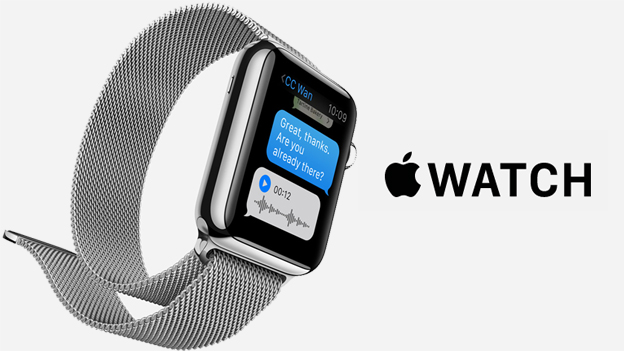How new technology will drive faster and smarter business decisions this year
Wearables and analytics will be two key factors

As we start this year, it seems that the technologies which will have a stand-out impact on businesses are those that enable greater efficiency, smarter decision making and ultimately a better customer experience. Here are my top picks in that respect…
Wearables in the enterprise
A key trend in the coming year will be the rise of wearable technology in the enterprise. Last year devices grabbed the public imagination with high-profile launches like the Apple Watch and Will.i.am's Puls, adding to more familiar wearables such as FitBit and Jawbone.
I think that this year we'll see greater penetration of wearables across the board as this technology jumps from the consumer to the business world. Wearables will become more industrialised in terms of features and functions, and organisations will begin to really look at how this technology can be integrated into existing systems to benefit employees.
Welcome citizen coders
One consequence of wearables and connected devices becoming more popular is a huge need for developers to create apps that maximise the benefits of these technologies. Demand for more apps, brought about by the connected everything, combined with the easy-to-use development platforms that were launched last year, will lead to a rise in 'citizen coders'.
This phenomenon will only grow as people from all walks of life realise that app development isn't just for professional programmers or those with A-level Computer Science. These intuitive development platforms will allow employees of all types to quickly create powerful enterprise apps, further driving the rise of citizen coders.
Startups on the up the up
As coding becomes not only cooler, but also more accessible, we'll see an increase in the number of early-stage technology startups. Last year a raft of schemes and awards to promote startup growth were announced, for example the government's £50 million (around $75 million, AU$93 million) of funding for innovative science and tech startups.
As these schemes start to make an impact and more would-be entrepreneurs are encouraged to take the plunge, 2015 will bring about a tipping point for tech startups. Additionally the growing number of millennials entering the workforce this year, who choose these exciting organisations over traditional blue-chip corporates as their employers, will contribute to the continued buzz and momentum around the sector.
Sign up to the TechRadar Pro newsletter to get all the top news, opinion, features and guidance your business needs to succeed!
Analytics for all
This year, company success will be built on fast and accurate decision-making reliant on in-depth analysis of the huge amounts of available business data – a good proportion of which will be coming from those wearables and other connected devices and objects I mentioned earlier.
Until now, business knowledge has frequently been siloed across departments, with the tools that unlock the value from the data requiring training. In 2015 we will see a fresh approach to business intelligence that embraces all employees. Analytics platforms developed last year are now making it much easier for business users to explore data, uncover new insights and take action instantly, from any device.
As a result, companies will be able to quickly deploy sales, service and marketing analytics, enabling everyone, at every level of an organisation, to make faster, smarter decisions anywhere and at any time.
The "always-on" business
As both customers and employees become ever more used to instant communication and information, mobile will continue to be the cornerstone for companies. With speed the new currency of business, companies have to be ready to engage with customers anytime, anywhere and on any device.
This means that managers need to be able to perform a lot of their role remotely, via mobile devices. It seems to me that companies unable to run their businesses successfully from these devices will find themselves at a competitive disadvantage this year.
The C-suite is now looking to the latest devices, platforms and data insights to improve competitive advantage by driving smarter business decisions and enabling organisations to achieve more, and achieve it faster. Ultimately this means that these trends must matter to the IT department too, as it will fall to this team to implement them.
- Andrew Lawson is the UK and Ireland Managing Director of Salesforce